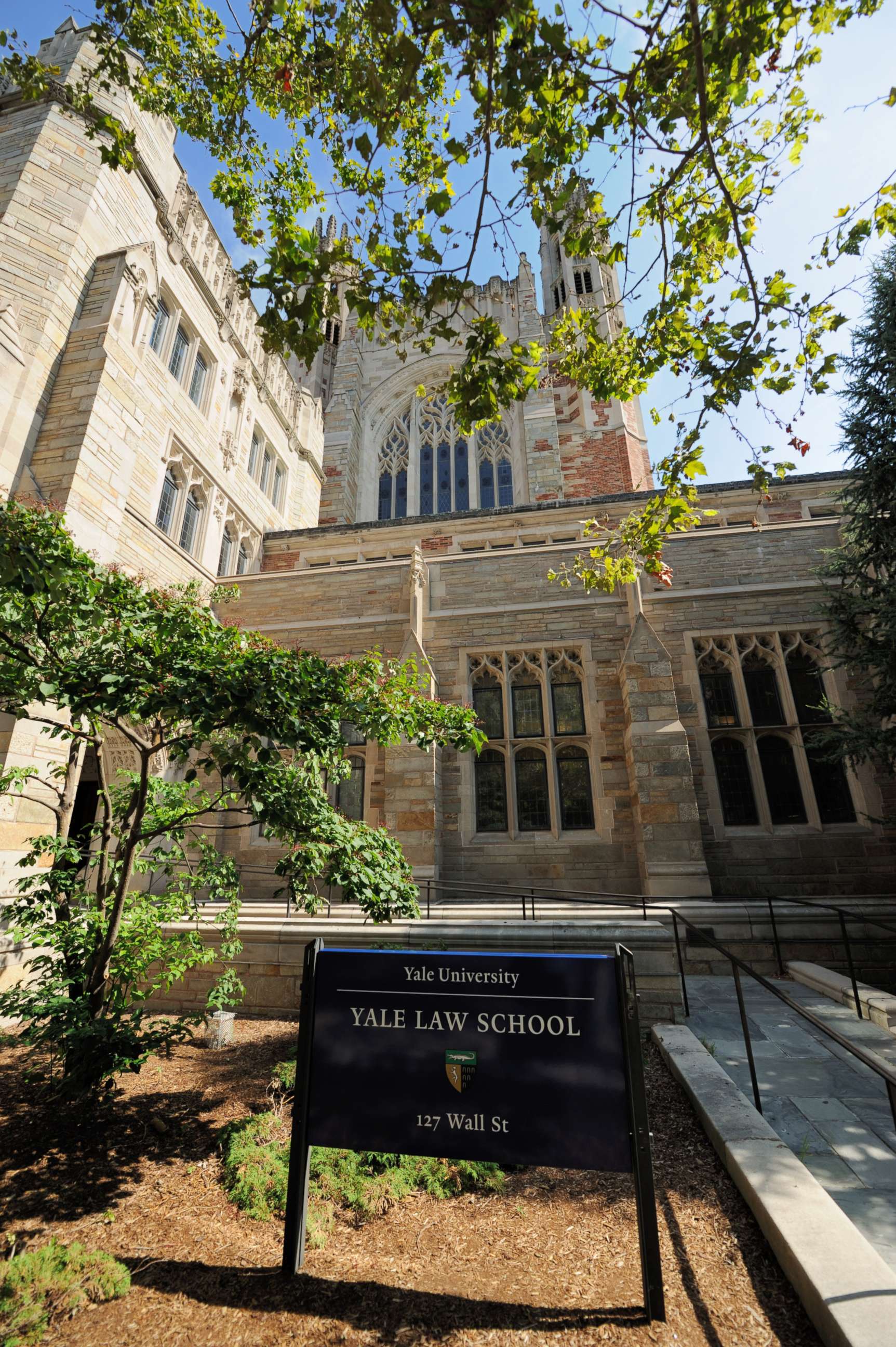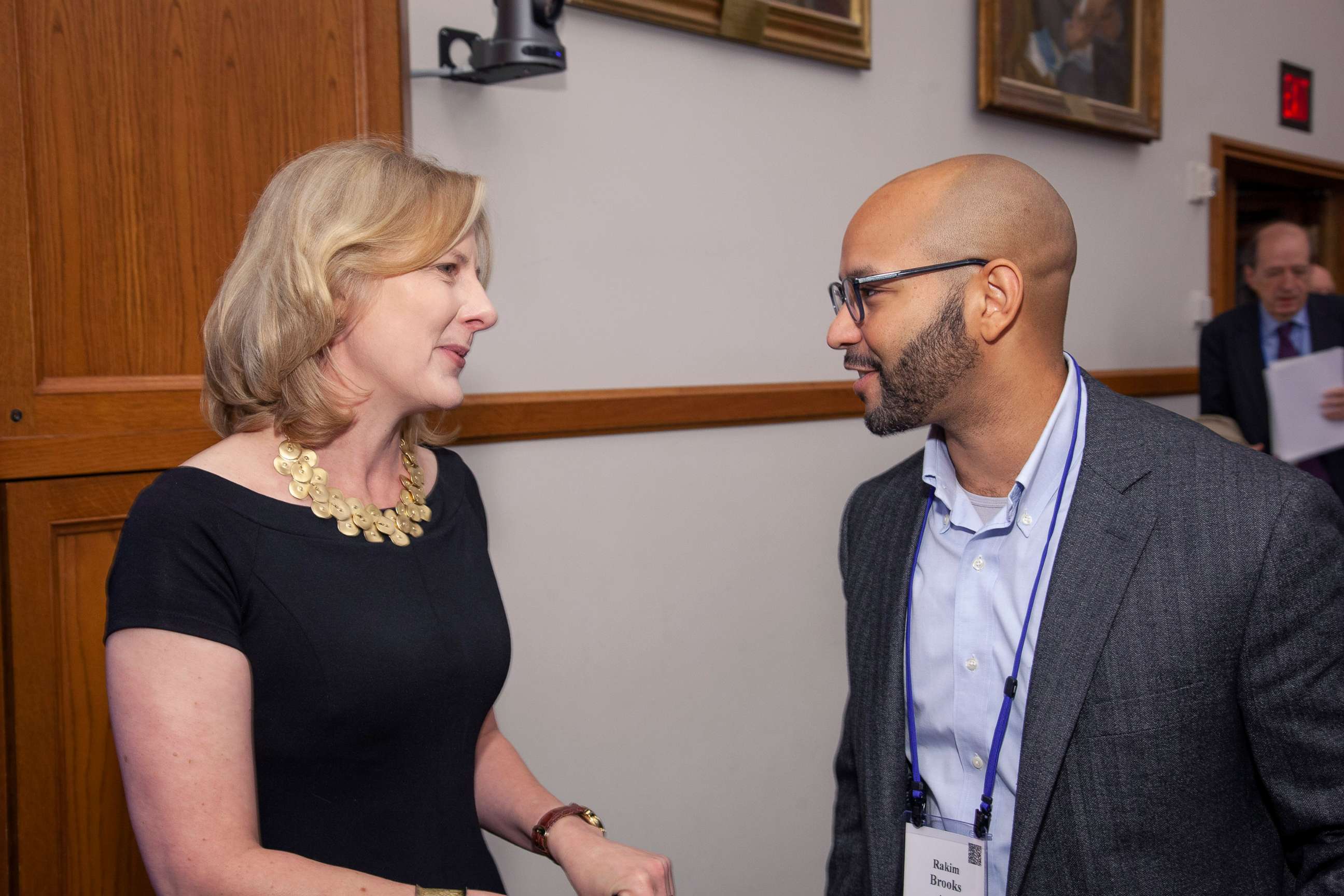Why Yale Law’s dean says eliminating tuition for students in need benefits the legal profession
The school's need-based scholarship fully pays tuition for students.
As students prepare to return to school in the fall, one Ivy League law school has a new scholarship aimed at broadening access to legal education by eliminating tuition for students with financial needs.
Yale Law School's Hurst Horizon Scholarship will erase tuition and pay for college fees and health care costs for law students with the greatest financial need. It's a first-of-its-kind scholarship that is creating new conversations about what law schools can do to diversify the legal profession.
Yale Law School dean Heather Gerken, the first woman to serve in the role, tells ABC News the scholarship was needed. "We have so many people from low-income backgrounds, who are not going to law school to pursue change because of the debt that waits on the other end for them," she said.
The scholarship will be given to any Juris Doctor student whose family income is below the federal poverty guidelines and whose assets are below $150,000. The law school tells ABC News that more than 45 students this fall will qualify to be awarded more than $70,000 per year to cover tuition, fees and health insurance.
The program's aim is to get lawyers to reflect the country's demographics more closely and to change the demographics of the legal landscape by setting the tone for other top law schools to eliminate tuition fees, the school says. According to a 2021 report from the American Bar Association, lawyers of color only make up 14.6% of the legal profession.

Other Ivy League law schools have made similar efforts in recent years.
In May, Stanford Law School announced it was eliminating tuition for low-income students.
A spokesperson for the University of Pennsylvania Carey Law School told ABC News the school increased financial aid by more than 60% over the past five years, raised $2.5 million to support its First Generation Professional Scholarships and pledged to increase financial support over the next five years by more than $8 million.
Meanwhile, a spokesperson for Harvard Law School told ABC the school “provides 100% need-based financial aid, and spending on financial aid grants has doubled over the past decade.”
Gerken says Yale Law's scholarship offers much needed benefits for the legal profession.
"If you really just think about this generation and what it's facing, this generation has inherited problems that are impossible to solve," Gerken said. "And the job of law schools is to teach them how to solve it. You cannot do that unless everyone is sitting at the table."
According to U.S. News and World Report, the average percentage of minority students was 28.5% in fall 2020 among 189 law schools surveyed.
"We also still have a system where law students of color graduate with a disproportionately higher loan debt burden," James G. Leipold, executive director of the National Association for Law Placement, told ABC News.
Leipold said two decades ago, the "bulk of institutional discretionary financial aid moved from a need-based environment to a merit-based environment, I think to the great harm of all of higher ed."
He said the change was driven by competition for SAT and LSAT scores. Universities began giving scholarships to people with high scores so that they could position their universities or law schools well in rankings, Leipold said.
Gerken said the idea for the Hurst Horizon Scholarship began in 2016 during a conversation between students. Rakim H. D. Brooks, a first-generation law student who grew up in New York City's public housing, led the conversation that night for students who were restarting the First Generation Professionals program at Yale, a group for students who are the first in their families to attend the school.

It was during that conversation that Gerken noticed many of the students saw law school debt as a family or community debt. "I realized that it's time for legal education to change if it really wants to achieve equity access and accessibility," she said.
Brooks, who now serves as president of the nonprofit Alliance for Justice, said the new scholarship, named after founding donors Soledad and Robert Hurst, will allow future law students to pursue their passions.
He says its "quintessentially American to provide the hardest working working class and poor kids the best opportunities, and that's what this scholarship is going to do."
Gerken said she believes this scholarship is just the beginning of Yale's mission to diversify the legal profession and "create a generation of lawyers and leaders who reflect our society."




